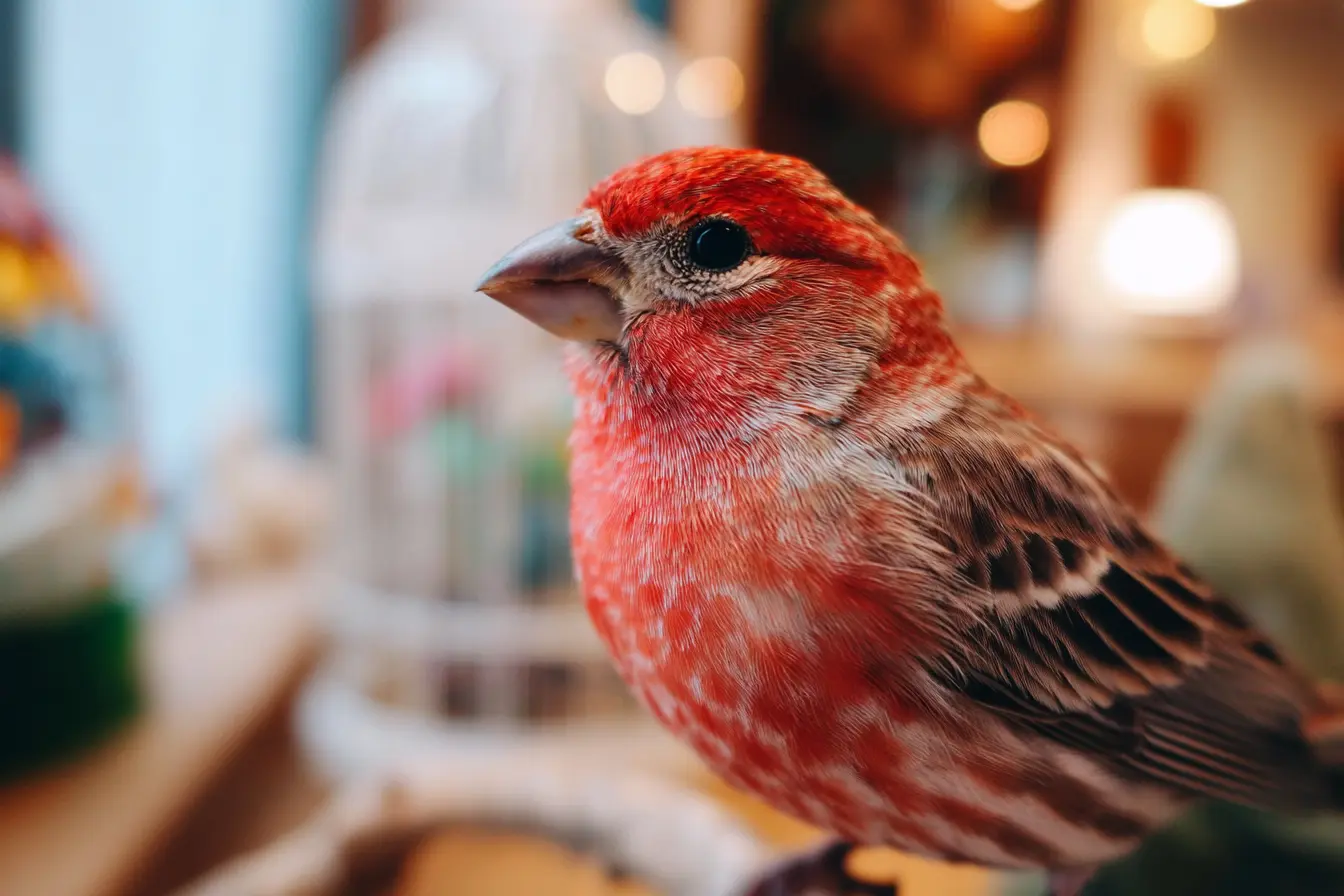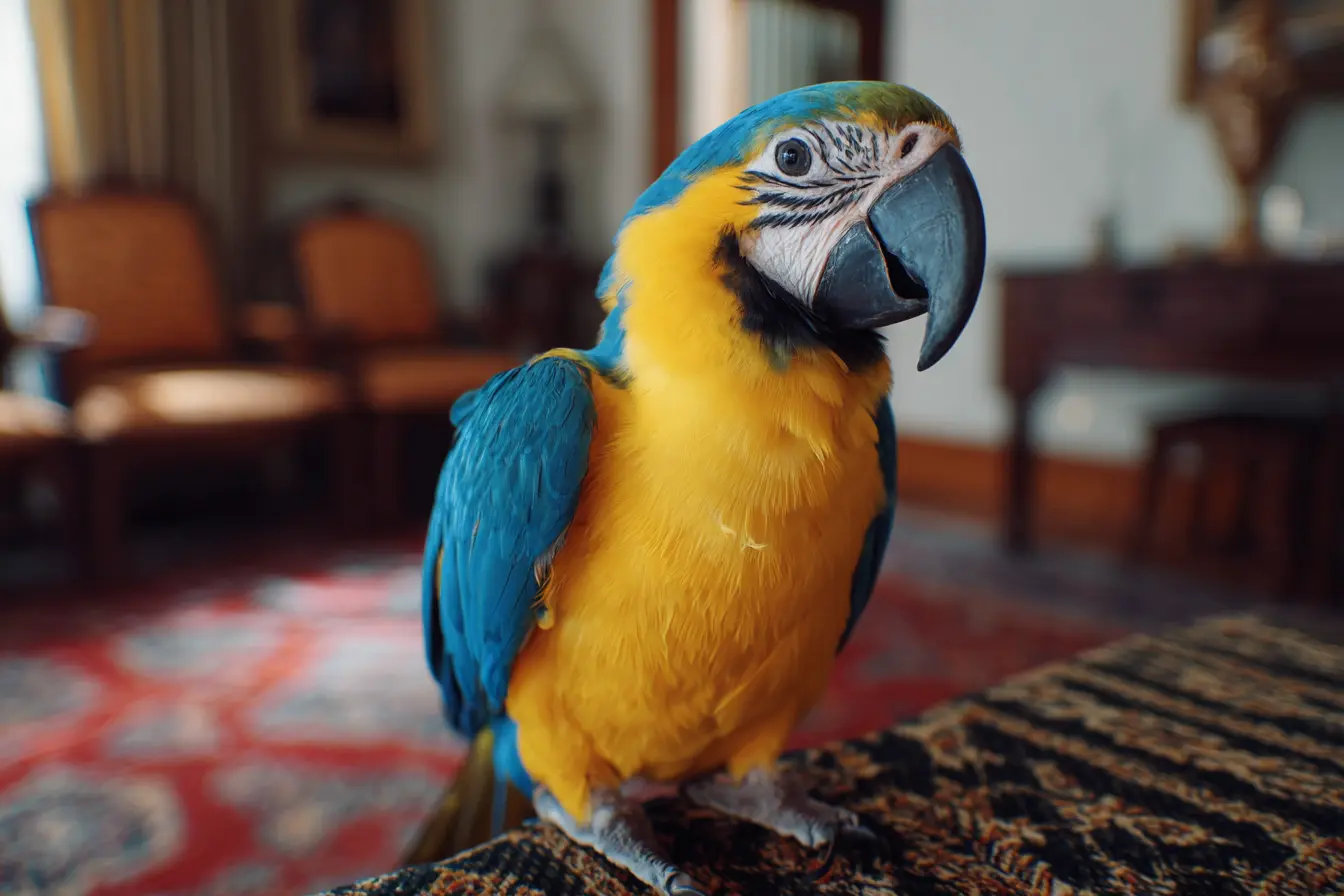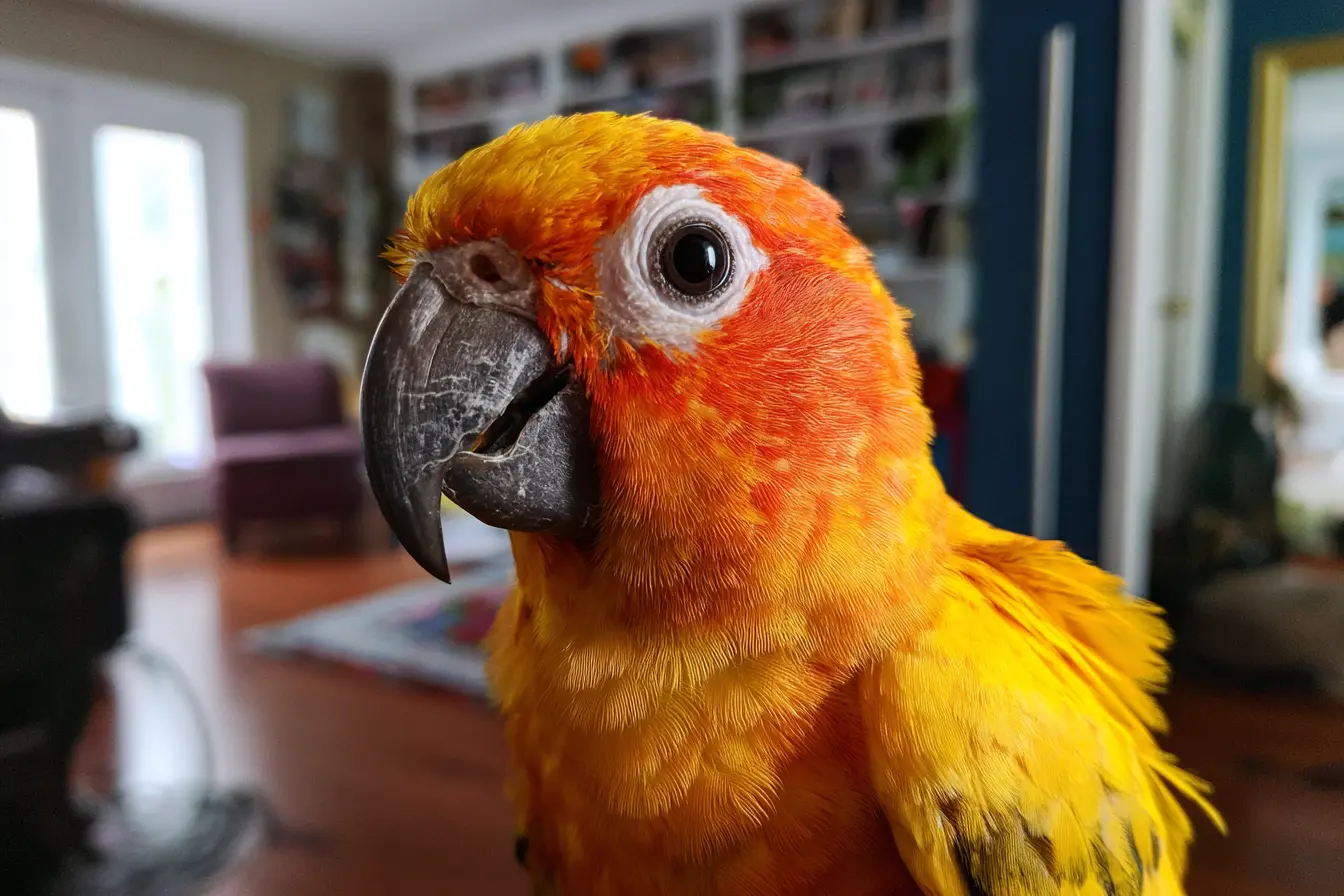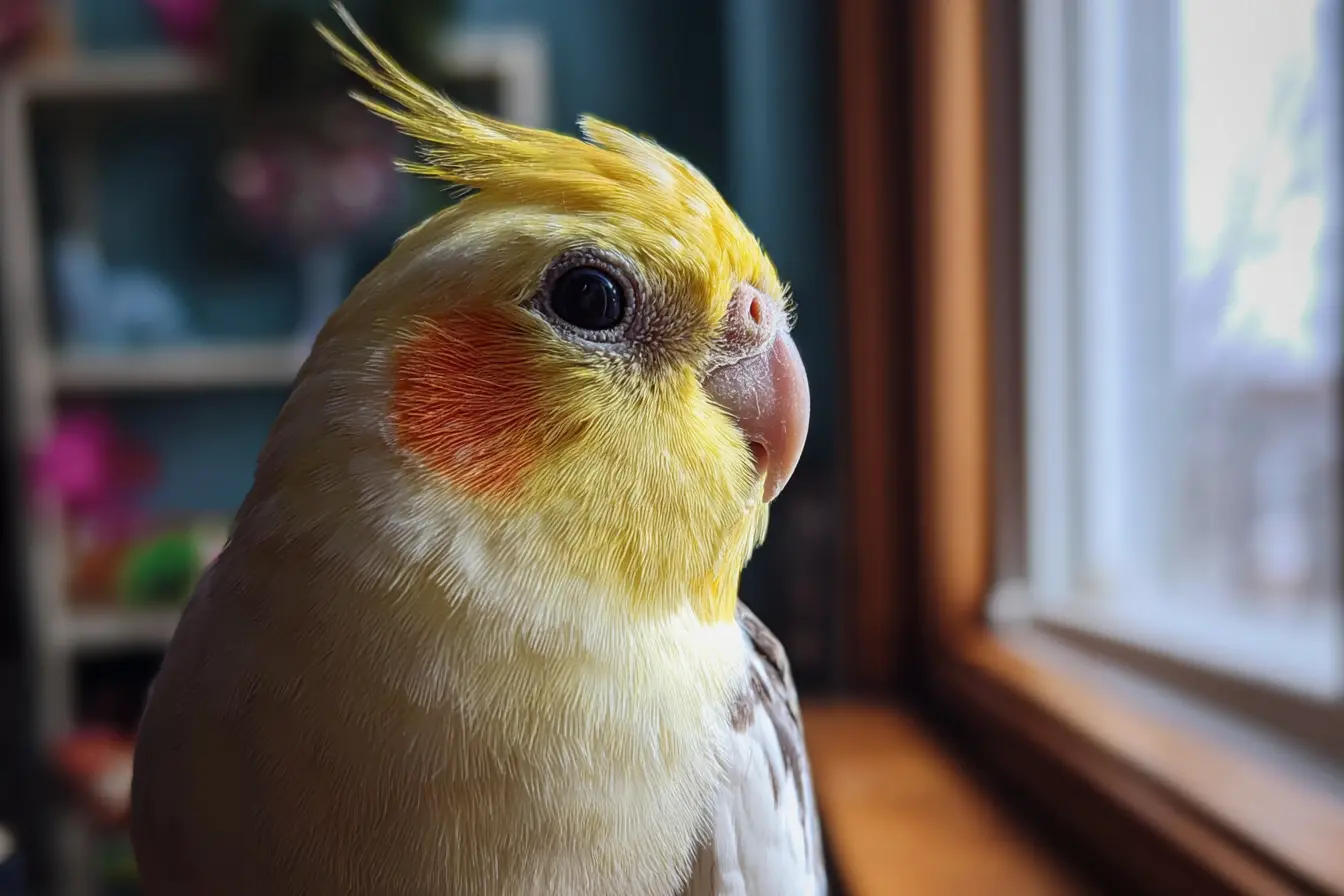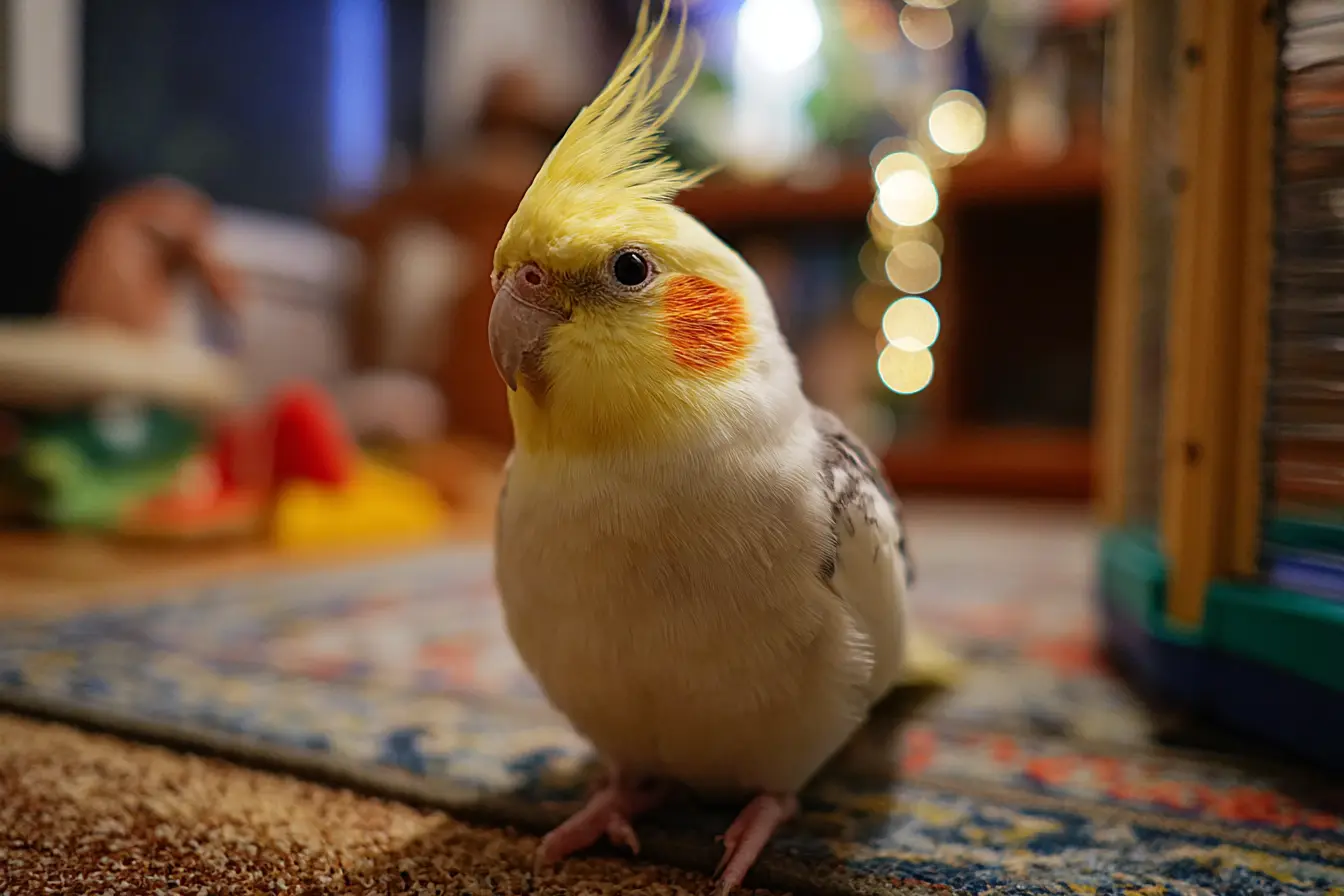
Common Dangers in the Home to Birds: What Every Owner Should Know
Keeping birds as companions can be a joyful and enriching experience. However, the average home contains many hidden hazards that can pose serious — and sometimes fatal — risks to birds. Their small size, efficient respiratory systems, and natural curiosity make them vulnerable to dangers that may seem harmless to humans.
This guide outlines the most common hazards found in homes, how to mitigate them, and essential safety tips to keep your feathered friends safe.
Kitchen Hazards
Teflon and Non-stick Cookware
When overheated, Teflon and other non-stick surfaces release toxic fumes that can kill birds within minutes. Common items containing Teflon (PTFE) include:
- Frying pans and saucepans
- Toasted sandwich makers
- Waffle makers
- Grills, griddles, and air fryers
- Rice cookers and slow cookers
- Irons and heat lamps
Prevention:
Avoid all cookware and appliances containing PTFE or PFOA. Use bird-safe alternatives like stainless steel, cast iron, or glass.
Hot Surfaces
Birds can easily land on hot stovetops, open ovens, or boiling pots.
Prevention:
Keep birds out of the kitchen when cooking. Never leave cooking unattended.
Sharp Objects
Knives, forks, graters, and other utensils can cause serious injuries if birds land on or near them.
Prevention:
Secure sharp objects and keep birds away from food preparation areas.
Toxic Foods and Plants
Foods Toxic to Birds
Several human foods are dangerous or deadly to birds, including:
- Avocado
- Chocolate
- Caffeine (tea, coffee, energy drinks)
- Alcohol
- Onion and garlic
- Salt and salty foods
- Fruit pits and apple seeds
- Xylitol (a sweetener found in sugar-free gum and products)
Prevention:
Never feed birds from your plate. Research safe foods carefully and supervise any feeding times.
Toxic Plants
Many common houseplants are toxic to birds, such as:
- Philodendron
- Pothos
- Dieffenbachia (Dumb cane)
- Lilies
- Ivy
- Oleander
Prevention:
Only keep bird-safe plants in the home, such as spider plants, bamboo, and certain ferns.
Airborne Hazards
Aerosols and Fumes
Birds are extremely sensitive to airborne chemicals. Common dangers include:
- Aerosol sprays (deodorants, perfumes, air fresheners)
- Cleaning products
- Paint fumes
- Scented candles and wax melts
- Essential oil diffusers
- Tobacco smoke
- Smoke from fireplaces or stoves
Prevention:
Use natural, unscented cleaning products and ventilate rooms well. Never use essential oils or scented candles around birds. Keep birds well away from any area being painted, cleaned, or treated.
Physical Dangers
Windows and Mirrors
Birds may not perceive glass and can crash into windows and mirrors, causing injury or death.
Prevention:
Use decals, blinds, or netting on windows. Supervise flight time carefully.
Ceiling Fans
Birds flying into an operating ceiling fan can be killed instantly.
Prevention:
Turn off ceiling fans whenever birds are out of their cages.
Open Toilets and Water Sources
Small birds can drown even in shallow water.
Prevention:
Keep toilet lids closed and avoid leaving open buckets, sinks, or baths unattended.
Electrical Cords
Birds love to chew, and exposed cords can electrocute them.
Prevention:
Cover cords with protective tubing or keep them completely out of reach.
Other Pets
Cats, dogs, and even small mammals can pose a threat to pet birds, even if they appear to "get along."
Prevention:
Always supervise interactions between birds and other pets. Keep birds securely caged when unattended.
Cage and Toy Hazards
Unsafe Cages
Poor-quality cages can be hazardous due to:
- Toxic metal coatings (lead or zinc)
- Improper bar spacing (causing entrapment)
Prevention:
Choose cages made from stainless steel or bird-safe powder-coated materials. Ensure appropriate bar spacing for the species.
Unsafe Toys
Toys are essential for enrichment but can also present risks:
- Small parts can be swallowed
- Frayed ropes can entangle legs or necks
- Cheap plastic can break into sharp pieces
Prevention:
Buy toys from reputable suppliers specialising in bird-safe products. Inspect toys regularly for wear and damage.
Human-related Risks
Inattentiveness
A distracted owner may accidentally step on or sit on a bird.
Prevention:
Be mindful when birds are out of their cages. Establish clear "bird time" rules in the household.
Jewellery and Clothing
Birds can become entangled in necklaces, earrings, or loose clothing.
Prevention:
Remove dangling jewellery and wear fitted clothing during handling sessions.
Home Improvement and Renovations
During renovations, the following pose huge risks:
- Dust and debris
- Chemical fumes from paints, adhesives, and varnishes
- Loud noises causing stress
Prevention:
Relocate birds to a safe, well-ventilated area far from the worksite. Delay returning them until all fumes have fully dissipated.
Seasonal Hazards
Christmas and Holidays
During festive seasons, the following hazards increase:
- Toxic plants like poinsettias, holly, and mistletoe
- Tinsel and small ornaments that can be ingested
- Scented candles and potpourri
- Increased cooking (risk of Teflon fumes)
Prevention:
Decorate thoughtfully and maintain vigilance during busy times.
Conclusion
Birds are highly sensitive and curious animals, making them vulnerable to a wide range of dangers in the home. Fortunately, with awareness, preparation, and proactive changes, owners can create a safe and enriching environment for their feathered companions.
Always supervise out-of-cage time, invest in bird-safe products, and educate everyone in the household about best practices. A safe home is the foundation of a happy, healthy life for your bird.
Vets near you
Speciality vets
- Aquatics vet specialists
- Birds vet specialists
- Camelids vet specialists
- Cats vet specialists
- Cattle vet specialists
- Deer vet specialists
- Dogs vet specialists
- Equines vet specialists
- Exotic vet specialists
- Goats vet specialists
- Pigs vet specialists
- Poultry vet specialists
- Sheep vet specialists
- Small Mammals vet specialists
- Wild vet specialists
Vet facilities
- Accessible by public transport
- Blood testing
- Car park nearby
- Client car park
- Dentistry
- Diagnostic imaging
- Disabled public access
- Flea and worm treatments
- Microchipping
- Mobile services
- Neutering
- Open at weekends
- Out-of-hours service
- Referral interests
- Referrals only
- Street parking outside
- Toilets available
- Vaccinations
